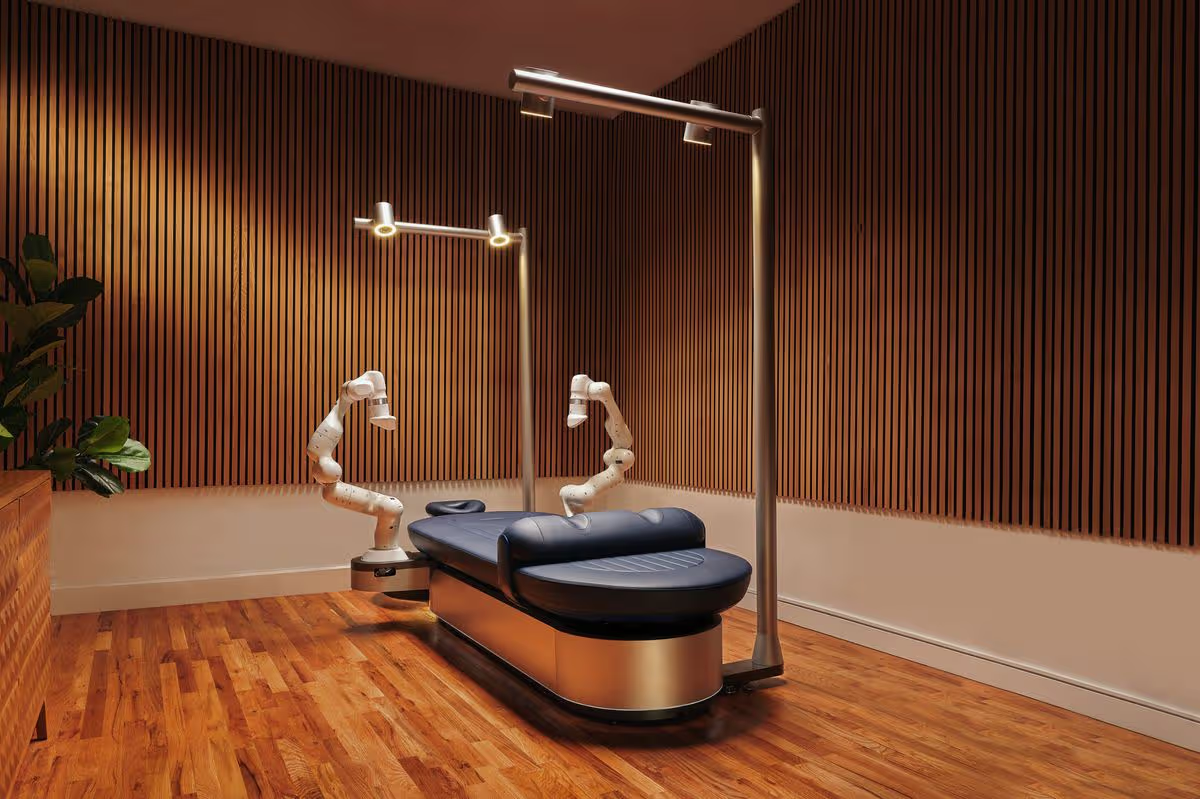During a trip abroad, I let the hands of a futuristic robot melt my worries away as it pivoted and descended on my pressure points during a massage like never before
I was guided through the spa and shown to my treatment room, ready to melt my worries away with an afternoon massage. Yet, as I entered the room, I wasn’t greeted by a cheery therapist but by a robot with its two extendable metallic arms ready to pummel.
Like most people, I’ve always enjoyed a massage – that feeling of your body melting away as a talented therapist works through the tense knots and aching joints. It’s always a treat, and not something I have often experienced, so when I had the opportunity to get a shoulder and back massage during my trip to Las Vegas this month, I jumped at the chance.
But this would be very different from anything I had experienced before. I was about to try out the AI robotic massage at Qua Spa in Caesars Palace, the first to be available on the iconic Las Vegas Strip.
READ MORE: Spanish town has Europe’s cheapest package holiday for 2026 summer getaways
I checked in for my Aescape Robotic Massage Experience at Qua Baths & Spa at Caesars Palace, and was asked for my clothing size. I was then taken to my treatment room, where a pair of athletic leggings and a short-sleeved top were perfectly hung on the back of the door.
For an AI massage at Qua Spa, guests are required to change into the provided, tight-fitting clothing so the robot’s metallic arms can glide smoothly across the body. It also avoids the embarrassment of feeling vulnerable in front of an android, which I was thankful for.
It was fascinating to see the metallic arms move around my body on the screen. Nevertheless, I watched warily as my mechanical therapist targeted each pressure point, unsure whether to fully trust the apparatus.
But after a while, as I settled into my surroundings with my new acquaintance, I began to relax. The base of the robot’s arms was warm, and every one of its movements felt smooth and effective, providing relief on my back and shoulders.
At times, the arms would hold their position for a few seconds, putting more pressure on that area. I thought it was a malfunction at first, but after a couple of times, I came to understand the process. Plus, knowing I could relieve the pressure at any given moment put me at ease.
My worries melted away, and I began to get used to this cutting-edge massage robot. Undoubtedly, it differed from a conventional massage, but it provided an effective release during my 15-minute session.
It also avoided the awkward question of, ‘Is this pressure ok for you?’, and allowed me to be in full control of my treatment with a swipe of a button. It’s an experience that will remain etched in my memory, but one I’d recommend trying out for a touch of relaxation!
The Aescape Robotic Massage Experience is available for $44 (£31) for 15 minutes or $88 (£63) for 30 minutes, at Qua Spa in Caesars Palace, Las Vegas. For more information, you can visit their website.
Do you have a travel story to share? Email webtravel@reachplc.com


